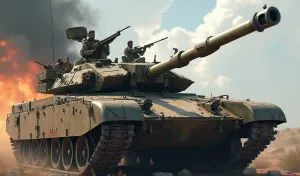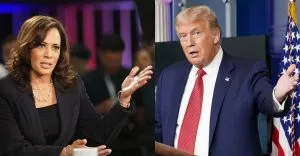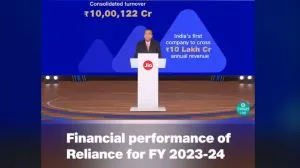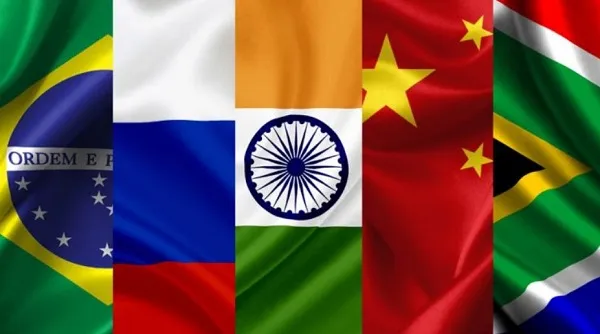
The BRICS, composed of Brazil, Russia, India, China, and South Africa, has rapidly expanded its diplomatic activities, advocated for its members to have a larger voice in global economic and security forums, and established brand-new financial institutions. The member nations share a desire for a larger role in the international community, despite their shared platform for global reform. In order to establish their own global economic and trade systems, the BRICS group of five emerging economies has discussed the possibility of creating a new Currency. There are dozens of additional countries interested in joining.
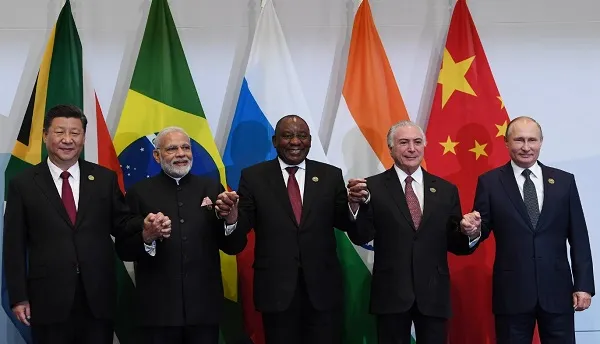
The United States, Canada, France, Germany, Italy, Japan, and the United Kingdom make up the Group of Seven (G7), an organization of the world's most developed economies. According to O'Neill's research, the combined GDP of Brazil, Russia, India, and China was around 23.3% of the global total by the end of 2000. He forecast a rise in GDP for the BRIC nations and suggested they be given a seat at the G7 table. In 2006, the four nations met informally to form a group of allies that would help the global economy.
| Established: | 16 June 2009 |
| Headquarters: | BRICS Tower, Shanghai, People’s Republic of China |
| First Summit: | June 23, 2022 |
The BRICS group's main goal was to bring attention to the fact that emerging nations should be given a bigger say in global governance. Strong remarks on the significance of G20 financial policy coordination in the wake of the global financial crisis were included in the joint statement issued in 2009. Nonetheless, it also made a number of specific observations regarding the need to change international financial institutions to ensure "greater voice and representation" for emerging economies. This includes a more open procedure for leadership selection. These declarations also addressed the long-standing customs of the World Bank having an American president, the IMF having a European managing director, and the developed Western economies having the largest influence in the voting and quota shares.
After South Africa's accession in 2011, the group's name was shortened to BRICS to reflect this. According to BRICS, BRICS accounts for roughly 1/3 of worldwide economic activity, meaning that in 2023, BRICS surpassed the G7 in terms of global GDP contribution. The BRICS Business Council, the Contingent Reserve Agreement, which offers short-term cash support, and the New Development Bank, which supports development projects in BRICS countries, are all part of the group's plan to transform the political and economic environment to their advantage.
Beginning in January of 2024, Six new countries will join the BRICS bloc. There are now six invited members of BRICS: Argentina, Egypt, Ethiopia, Iran, Saudi Arabia, and the United Arab Emirates. Cyril Ramaphosa, president of South Africa, has announced that these six nations will join the BRICS (Brazil, Russia, India, China, and South Africa) organization. The statement was made at the 15th annual BRICS summit, which was held in Johannesburg, South Africa, and attended by leaders from Brazil, Russia, India, China, and South Africa.
China, the EU's dominant nation, has long sought expansion in the hopes that adding more members will give the union more influence. The current members of the bloc account for about a quarter of global GDP and 40 percent of the world's population. Drives to strengthen the bloc, which have at times suffered from internal splits and a lack of clear vision, have taken on greater significance in light of the heightened global tensions created by the Ukraine crisis and a growing competition between China and the United States.
India has "positive intent and an open mind" despite its concerns about Chinese domination and warnings against hasty growth. Meanwhile, Brazil is worried that BRICS' expansion may reduce its standing. However, the BRICS group's promise to become a champion of the developing 'Global South' and offer an alternative to a world order controlled by wealthy Western nations is already gaining resonance, even if an expansion of the bloc remains hypothetical.
The organization lacks the official status of a multinational body like the United Nations, the World Bank, or OPEC. Annually, the leaders of state and government from all member countries get together, and each country in turn chairs the group for a year. BRICS is a diverse group of nations. It's a cooperation on equal footing between nations with different perspectives but the same goal in mind, a better world. The five members of BRICS, have agreed on the expansion process's overarching principles, standards, criteria, and procedures. Six of the countries were invited are among the more than 20 that have formally requested to join BRICS. There has been informal interest from other key African players including Nigeria and Ghana.
"The relevance of the BRICS is demonstrated by the growing interest of other countries to join group," stated Luiz Inácio Lula da Silva, the president of Brazil. In terms of purchasing power, the BRICS now account for 37% of the world's GDP, while in terms of population, they account for 46%. BRICS will remain a welcoming organization for new members.
According to India's Prime Minister Narendra Modi, "expansion and modernization of BRICS is a message that all institutions around the world need to mold themselves according to changing times."
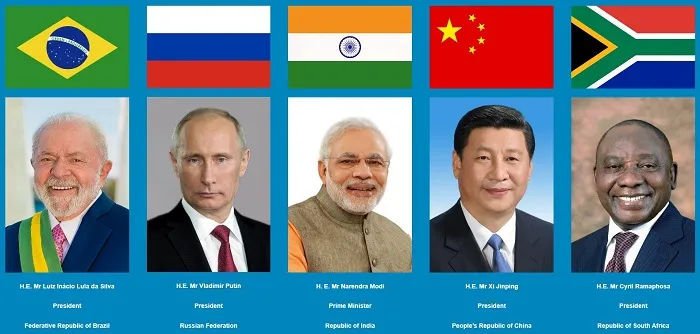
To foster economic cooperation and development among themselves, the BRICS Countries have formed a number of cooperative projects and institutions, including the BRICS Business Council and the New Development Bank (previously known as the BRICS Development Bank). In addition, they meet annually to discuss trade, climate change, and international security and coordinate their stances on these and other pressing global issues. In spite of their shared demographic and economic characteristics (the BRICS), each country has its own set of challenges and cultural traditions that set it apart. This makes it challenging for the BRICS nations to work together, but their combined strength is evident, and their political and economic impact are only expected to expand in the years to come.
The largest country in South America, Brazil, has an economy that spans numerous sectors, from industry and agriculture to mining and oil.
In terms of land size, Russia is by and away the largest country in the world. Its highly developed economy is driven mostly by its oil and petrol sector.
The Indian economy is booming thanks to the country's expanding manufacturing, agricultural, and service sectors like IT and outsourcing. India has the second-highest population in the world.
China has the largest population and the second largest economy in the world. Its exports, manufacturing sector, and cutting-edge technology are all well-known.
The southernmost African country, South Africa, relies on a wide range of economic activities, including manufacturing, tourism, and mining.
The BRICS countries contribute significantly to global GDP and have some of the world's fastest-growing economies. Raw materials, energy, and other resources are plentiful, and their consumer markets are huge and expanding. To foster economic cooperation and development among themselves, the BRICS have established a variety of cooperative projects and organizations. The BRICS nations have risen to prominence on the global stage and as regional heavyweights. The BRICS countries are very different from one another politically, culturally, and ideologically, but they all want to enhance multipolarity and transform the global governance structure. Locationally and militarily, the BRICS countries have significant advantages. They have formed many important alliances and cooperation in fields like defense, energy, and space travel.


